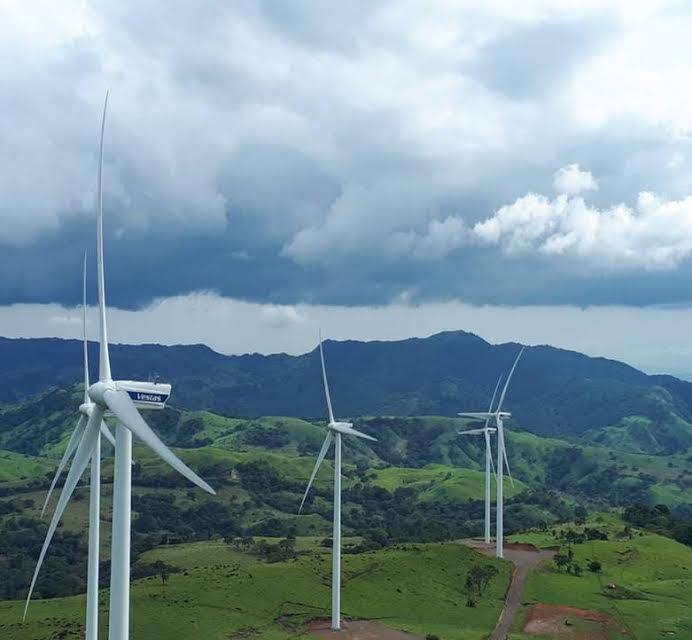Solar power

MPC Capital is ready to transform the renewable energy landscape in the Caribbean. The Hamburg, Germany-based investment management firm is already overseeing the construction of a US$64 million solar energy park in Jamaica, and together with TT conglomerate Ansa McAl, has recently acquired a US$50 million wind farm in Costa Rica. The next step, according to Martin Vogt, the managing director for the company’s renewable energy portfolio, is another solar park, this time in Trinidad.
“We believe the Caribbean is currently one of the most attractive regions to do investment in renewable energy because there is massive political support since this region is one of the most vulnerable to the effects of climate change,” Vogt told Business Day recently.
MPC is a publicly listed company in Germany and manages funds from institutional investors in assets like shipping, real estate and infrastructure – including renewables – and aside from the Caribbean, have other projects around the world, in Mongolia, Spain, Portugal, Uruguay and Brazil.
In TT, the company has already pitched to the Minister of Energy, which had launched an expression of interest tender earlier this year. Now, Vogt said, MPC and its local partners are waiting to hear back if they’ve qualified for the next round, and given the company’s track record, he believes it can be the partner of choice.
As part of their commitment to the region, raise capital and offer an opportunity for investors, MPC has created MPC Caribbean Clean Energy Ltd, which will be cross-listed on the TT and Jamaican stock exchanges. In a release, MPC said the company was created to facilitate and participate in the renewable project investments of MPC Caribbean Clean Energy Fund LLC in Jamaica, TT and the wider Caribbean. MPC said this fund was one of only a few infrastructure investment funds specialising in clean energy in the region and had potential to provide an attractive investment for both institutional and private investors because the industry is only expected to grow.
The initial public offer (IPO) was opened on December 3 and closed December 14. The company raised US$11 million from its IPO. The price per share was US$1, and the company's target was primarily institutional investors. In a response to questions from Business Day, the company said it had not been granted International Financial Institution (IFI) approval, without stating any reasons. "As a result many interested institutional investors were not able to participate in the IPO," the spokesman said.
Despite not meeting the target because of regulatory issues, the company said it still saw strong demand on investing in clean energy projects in the region.
Business Day did try to clarify the price per share and the number of subscribers but was told the final figures had not yet been tabulated.

The Jamaican solar park will be the first investment in the fund. Vogt said the plant will have a capacity of 50 megawatts of energy, or enough to power 50,000 households. He estimated it will take two years from construction to production – one year to build and another to get the requisite clearances and licences, including environmental approval and connection to the national grid.
The company will need a long-term off-take contract from Jamaica’s sole electricity provider, JPS Co, to ensure its product has a guaranteed customer. Vogt was confident of the plant’s success and its ability to bring down electricity prices in Jamaica. The cost of electricity in Jamaica is about 18 US cents per kilowatt hour. MPC’s cost will be about 4.5 US cents, and it will sell energy at 8.5 US cents per kilowatt hour. With that surplus, he says, the company can cover the cost of its debt, as well as provide 12 to 15 per cent returns to investors.
And he’s confident that, despite cheap energy in TT – the cheapest in the region at about five or six US cents per kilowatt hour – the cost-effectiveness of their production, on par with the current price, means they can just about break even in TT, and allow the country to divert gas used to fuel power plants into exports.
“The cheap prices (in TT) are affected by subsidies. If you think about removing those subsidies power prices will go up. Unsubsidised, there’s certainly the opportunity to compete using the same (off-take contract) model as Jamaica, including a long-term contract for a power purchase agreement,” he said.
The plant for Trinidad would cost about US$100-150 million, on 150 hectares of land and provide 100 megawatt hours. Vogt added that it would be an attractive project from the point of view of foreign direct investment, a new tax base, and long term local jobs – and of course, extra revenue from gas that was sold instead of used to generate electricity.
The cost of renewable energy has decreased in the last few years, Vogt said, because the technology has improved and financing costs went down, making it more competitive with conventional power. Power in TT is also dependent on a single source, so from a diversification standpoint, renewables are a good idea, he added.


Comments
"Solar power"